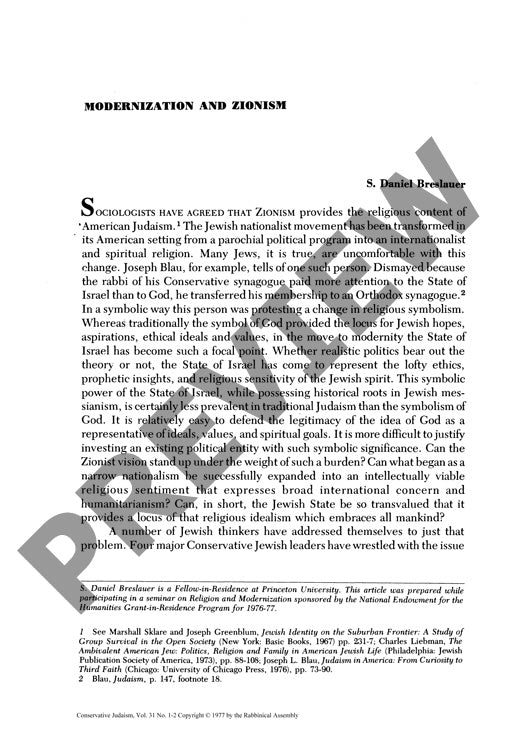Modernization and Zionism
Couldn't load pickup availability
The tension between Jewish particularism and universal values emerged as a defining challenge for American Conservative Judaism during modernization, prompting influential theologians to reimagine Zionism's role in religious thought. Four major Conservative thinkers—Mordecai Kaplan, Abraham Heschel, Robert Gordis, and Jacob Agus—developed distinct frameworks for reconciling Zionist commitments with universalist principles. Their approaches clustered around two primary interpretations: viewing Zionism as either compatible with or generative of universalism, while employing either historical-ideological or structural-institutional methodologies. Agus adopted a compatible-historical approach, emphasizing Zionism's potential for both particularism and universalism. Gordis pursued a compatible-structural perspective, arguing that Zionist cultural identity enhances pluralistic society through creative exchange. Heschel embraced a creative-historical interpretation, viewing Zionism as a transparent symbol for universal human needs that awakens prophetic consciousness. Kaplan advocated a creative-structural vision, proposing democratic Zionist institutions to foster international humanitarian perspectives. Together, these theologians transformed Zionism from a parochial political program into a modernized religious framework that bridges particular Jewish identity with universal humanitarian values. Their approaches represent a form of political religion that avoids both the fragmentation of modern individualism and the anti-modernist particularism often associated with nationalist movements, demonstrating how religious thought can constructively engage with nationalism's challenges in the modern era.

More Information
-
Physical Description
-
Publication Information
Published 1976
ISBN
-
Publication Credits
S Breslauer

